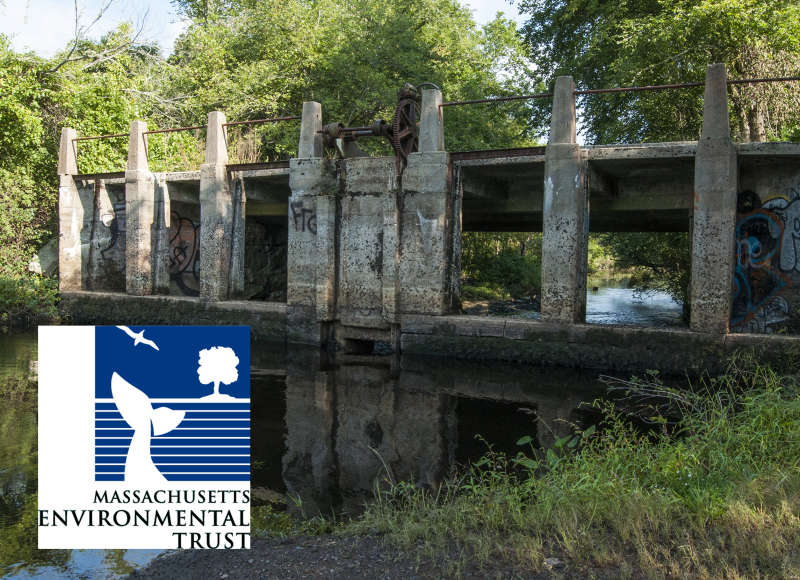Weweantic River Restoration Public Meeting
Wareham, MA 02571
The Buzzards Bay Coalition invites members of the public to an information session at the Wareham Main Library (59 Marion Rd., Wareham) on Thursday, June 16 at 5:30 p.m. to hear the results of a feasibility study for restoring fish habitat on the Weweantic River at Horseshoe Mill.
At an informational kickoff meeting last December, community members provided public input on possible restoration alternatives for the Weweantic River at Horseshoe Mill, a former industrial site in Wareham that the Coalition protected in 2012. Restoring the Weweantic River at this location will improve natural conditions for fish and wildlife, allow more people to enjoy the river for recreational activities like fishing and paddling, and enable the river and its resources to better adapt to a changing climate.
The Weweantic is the largest freshwater river that flows to Buzzards Bay, and it’s home to the most diverse community of migratory fish that remains anywhere on the Bay. However, the crumbling remnants of a former mill and dam at Horseshoe Mill block many fish from swimming upriver to spawn. Opening this barrier will improve access to habitat and help increase fish and wildlife populations over time.
The Coalition has contracted Princeton Hydro, a river restoration engineering firm, to evaluate the best alternatives available for improving natural resource values at Horseshoe Mill. Since the kickoff meeting in December, Princeton Hydro has developed conceptual designs for restoration at Horseshoe Mill and evaluated these designs with input from a technical advisory committee. The Coalition will present the feasibility of these design alternatives at the public meeting this Thursday. This project is funded by a grant from the Massachusetts Environmental Trust.
The Coalition recently completed a similar, successful restoration project at The Sawmill on the Acushnet River, which opened to the public in early November. There, the Coalition and its partners restored fish passage and natural river banks while also installing public trails, river overlooks and a canoe launch.
Cost: Free
